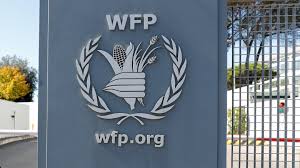The World Food Program (WFP) is currently conducting assessments in various communities across Zimbabwe to evaluate the impact of the El Nino-induced drought.
This announcement came during a panel discussion on El Nino and drought mitigation in Zimbabwe organized by WFP and the Food and Agriculture Organisation (FAO) at the ongoing Zimbabwe International Trade Fair (ZITF).
“We have been working closely with the government and FAO, anticipating a crisis due to the El Nino phenomenon. Assessments are ongoing under the leadership of the government’s food and nutrition council to determine the precise number of affected individuals,” stated WFP Zimbabwe Deputy Country Director Christine Mendes.
She highlighted the severity of the situation based on initial observations, indicating that crop failures and water shortages are widespread, affecting both crops and livestock.
Mendes anticipated that the current numbers would surpass last year’s reported figure of 2.7 million food-insecure people in rural areas.
She also discussed WFP’s previous investments in community infrastructure, such as repairing small dams, and expressed readiness to provide support based on assessment outcomes.
“We started by investing in repairing some of these small dams in communities with a contribution of US$7.5 million. We are also preparing hopefully that when resources avail themselves, we will do a response supporting the communities that will be affected after the outcome of the assessments.”
She added, “We are also looking at working very closely with the Ministry of Labour, Public Service, and Social Welfare in the food deficit mitigation strategy program where we provide technical assistance but the government has taken leadership in the current ongoing food deficit mitigation program where food is being distributed in all districts in the country. WFP only supported a small package to four districts out of the 16 districts in the country.”
Leonard Munamati, acting chief director of Agriculture and Rural Development Advisory Services, outlined the government’s efforts in conducting assessments to estimate crop yields and acknowledged the adverse effects of El Nino on agriculture.
“Currently, we are carrying out the second crop, fisheries and livestock assessments where we are mainly determining estimates of yield s in terms of the various crops and I think by the end of next week the results will be out on what did we get from the cropping programs that we did this season,’ said Munamati.
Meanwhile, FAO Sub Regional Coordinator for Southern Africa and FAO representative in Zimbabwe, Patrice Talla, said it was important to strengthen irrigation schemes to mitigate the impact of water scarcity on agriculture.
“FAO will collaborate closely with the Ministry to implement drought strategies, focusing on strengthening irrigation schemes to address water scarcity challenges faced by farmers.”

